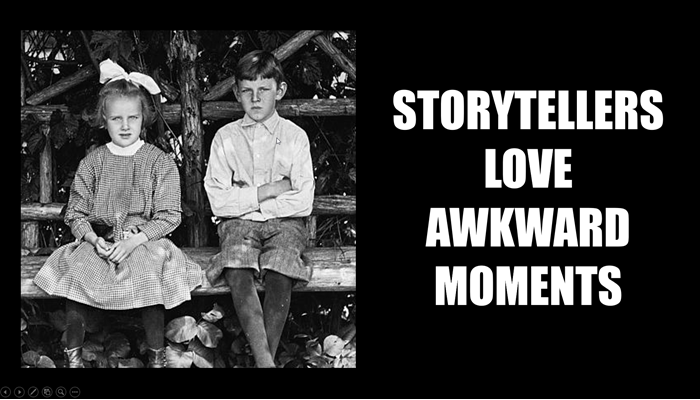
I’d flown 3,000 miles to interview at a small, privately-held company. The first session took place over lunch with the CEO and CFO. They both described the need for a new business development manager. Since I’d worked with the CEO before, he wanted me to fill the role.
My next interview was scheduled back at the office with the engineering manager. Since he hadn’t returned from lunch yet, the CEO suggested that I sit at an empty desk and surf the web while I waited.
After about five minutes of surfing, a guy walked into office. Assuming that he was the engineering manager, I stood to greet him.
“Why are you sitting at my desk?” the man asked.
“Umm,” I stammered. “I was told to wait here?”
“Who told you that?” he barked.
I pointed toward the CEO’s office.
“Well, you can’t wait here,” he said, pushing me out into the hallway and closing the door behind him.
I stood there, stunned, wondering what had just happened. That’s when the engineering manager arrived and introduced himself.
“Nice to meet you,” I said. I pointed to the office that I’d been ushered out of. “Who’s that?”
“Oh, that’s our BizDev guy,” he said.
That confused me. “The BizDev Guy?” I could have sworn that the CEO and CFO had described the BizDev guy using the past tense–as in he’d already been fired. But, the farther I got into the interview with the engineering manager, the clearer my understanding became. The BizDev guy was unknowingly a dead man walking.
Before I left for the airport, I asked the CEO about his curious choice for my waiting area.
“Sorry about that,” he said unconvincingly. “We weren’t expecting him to be in the office today.”
I left feeling as if I’d just been used in some sadistic social experiment.
![]()
Storytellers love awkward moments because they’re filled with boundless possibility. Fueled by both internal and external conflicts, cringe-worthy situations offer much storytelling latitude. Listeners easily relate with awkward moments and have instant sympathy for those who are stuck in them.
Awkward situations work because they are uncomfortable for the characters and the audience. The same discomfort that makes us squirm in our seats is the same force that forges a memory deep into listeners’ minds to be recalled when we find ourselves in future awkward moments.
One of my biggest life regrets was taking that job. Blinded by the opportunity to bring my family to Southern California, I couldn’t see the early warning signs. I should have recognized the experience as a real-life foreshadowing moment. If the CEO was capable of such manipulation while on his best behavior, what was he capable of on his average behavior? I saw many more examples of this sociopathic behavior over the eighteen months that I could stomach the position.
Awkward moments are both relatable and memorable. They’re relatable because we’ve all been in uncomfortable situations before. They’re memorable because we tend to remember painful moments in our lives. So, the next time you’e looking for a story to tell, create a list of awkward moments that you’ve found yourself in. What did you learn from them? What might you have done differently? Did it prepare you for dealing with a future awkward moment? Perhaps this list will lead you to your next story.
Photo Credit: Detroit Publishing Co., Publisher. [Boy and Girl Seated in Rustic Arbor]. , None. [Between 1900 and 1920] Photograph. Retrieved from the Library of Congress, https://www.loc.gov/item/det1994022676/PP/.